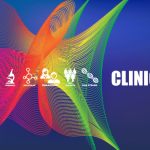
FibroGen Receives Orphan Drug Designation from the U.S. FDA For Pamrevlumab for the Treatment of Duchenne Muscular Dystrophy
FibroGen, Inc. a leading biopharmaceutical company discovering and developing a pipeline of first-in-class therapeutics, today announced that the U.S. Food and Drug Administration (FDA) has granted Orphan Drug Designation for the company’s anti-CTGF antibody, pamrevlumab, for the treatment of patients with Duchenne muscular dystrophy (DMD).
DMD is caused by the absence of the dystrophin protein, resulting in abnormal muscle structure and function and buildup of fibrosis in muscle, which diminishes mobility, pulmonary function, and cardiac function. Constant myofiber breakdown results in persistent activation of myofibroblasts and aberrant production of extracellular matrix (ECM) proteins, including collagens and fibronectin, leading to extensive fibrosis in skeletal muscles.
Pamrevlumab is a fully human monoclonal antibody that inhibits the activity of connective tissue growth factor, or CTGF, a critical mediator in the progression of fibrosis and related serious diseases.
Elias Kouchakji, M.D., Senior Vice President, Clinical Development and Drug Safety – “We are pleased to have received Orphan Drug Designation from the FDA for pamrevlumab in the treatment of DMD. There is a high unmet medical need for patients suffering from this debilitating disease needing a new treatment option. All 21 non-ambulatory DMD patients in our ongoing phase 2 study with pamrevlumab have completed the first 52 weeks of treatment. We are evaluating a number of clinical parameters in this study, including lung function, cardiac function, and upper extremity muscle function, and tissue fibrosis. We look forward to the continued development of this investigational therapeutic.” News release here.
About Pamrevlumab
Pamrevlumab is a first-in-class antibody developed by FibroGen to inhibit the activity of connective tissue growth factor (CTGF), a common factor in fibrotic and proliferative disorders characterized by persistent and excessive scarring that can lead to organ dysfunction and failure. Pamrevlumab is advancing towards Phase 3 clinical development for the treatment of idiopathic pulmonary fibrosis (IPF) and pancreatic cancer. Pamrevlumab has been granted Orphan Drug Designation in IPF, pancreatic cancer, and Duchenne muscular dystrophy (DMD). Pamrevlumab has also received Fast Track designation from the U.S. Food and Drug Administration for the treatment of patients with IPF and patients with locally advanced unresectable pancreatic cancer and is currently in a Phase 2 trial for DMD. Across all trials, pamrevlumab has consistently demonstrated excellent safety and tolerability profile to date. For information about pamrevlumab studies currently recruiting patients, please visit www.clinicaltrials.gov.
Pamrevlumab is being evaluated in ongoing Phase 2 clinical studies for the treatment of idiopathic pulmonary fibrosis, pancreatic cancer, and Duchenne muscular dystrophy.
- FG-3019-079, Phase 2, Duchenne Muscular Dystrophy
> Active, not recruiting
About Orphan Drug Designation
Orphan Drug Designation program provides orphan status to drugs and biologics which are defined as those intended for the safe and effective treatment, diagnosis or prevention of rare diseases/disorders that affect fewer than 200,000 people in the U.S., or that affect more than 200,000 persons but are not expected to recover the costs of developing and marketing a treatment drug. This designation qualifies the sponsor for various development incentives of the Orphan Drug Act, including tax credits for qualified clinical testing, to advance the evaluation and development of products that demonstrate promise for the diagnosis and treatment of rare diseases or conditions. Orphan Drug Designation can also convey up to seven years of marketing exclusivity if the compound receives regulatory approval from the FDA.
Health Canada has quietly deleted from its website all references to a planned framework for rare-disease drugs that dates back to 2012 and was intended to improve the availability of such drugs in Canada.
Canada is one of the only developed countries without a regulatory framework for rare-disease drugs, also known as orphan drugs.
About FibroGen
FibroGen, Inc., headquartered in San Francisco, California, with subsidiary offices in Beijing and Shanghai, People’s Republic of China, is a leading biopharmaceutical company discovering and developing a pipeline of first-in-class therapeutics. For more information, please visit www.fibrogen.com.
Deepen a few words
CTGF, also known as CCN2 or connective tissue growth factor
CTGF has essential roles in many biological processes, including cell adhesion, migration, proliferation, angiogenesis, skeletal development, and tissue wound repair and is critically involved in fibrotic disease and several forms of cancers. A tissue is defined as the substance made up of cells of the same composition that all perform the same function. Connective tissue primarily serves to support and protect the other types of body tissues. They are located between the organs and constitute a considerable part of the body’s cellular tissue. They are primarily composed of cells, notably fibroblast cells that create another significant component of the body: collagen fibres, which ensure the resistant quality of connective tissue. This tissue also contains a substance called the extracellular matrix in which the cells rest.
Myofibroblasts
Myofibroblasts differentiate, invade and repair injured tissues by secreting and organizing the extracellular matrix and by developing contractile forces. When tissues are damaged, tissue homeostasis must be re-established, and repair mechanisms have to rapidly provide harmonious mechanical tissue organization, a process primarily supported by (myo)fibroblasts.



